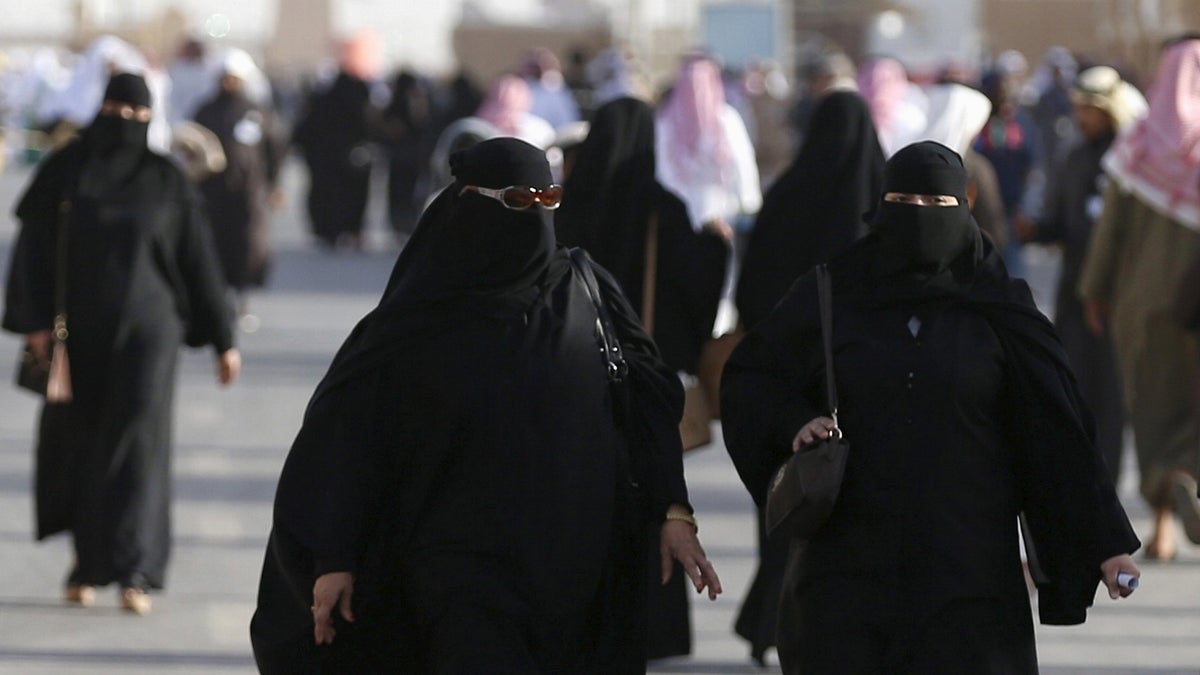
Saudi women outside Riyadh. (REUTERS/Faisal Al Nasser)
Parents in southern Indiana have voiced their disapproval over a worksheet assigned to middle school students that they claim paints Sharia or Islamic law in oppressive countries like Saudi Arabia in a positive light.
ATHEIST GROUP WINS BATTLE TO PULL CROSS FROM PUBLIC PARK AFTER THREATENING LAWSUIT
According to the Courier-Journal, several parents spoke out against the worksheet assigned to seventh graders at Highland Hills Middle School in Georgetown, Indiana, during a recent New Albany-Floyd County school board meeting.
The worksheet in question features a passage attributed to a fictional 20-year-old woman from Saudi Arabia named Ahlima. In the passage, Ahlima states that she is "very fortunate" to be living under the rule of Sharia law, which in many Muslim cultures is a strict religious code that governs the way Muslims dress and act. She goes on to explain that she will soon be married and become a man's second wife.
NEARLY 1 MILLION CHRISTIANS REPORTEDLY MARTYRED FOR THEIR FAITH IN LAST DECADE
"I understand that some foreigners see our dress as a way of keeping women from being equal," the worksheet states. "But ... I find Western women's clothing to be horribly immodest."
As many in the West have warned about the dangers of Sharia law, stating that it oppresses women and non-Muslims, one father told the school board that the worksheet is similar to praising Nazi Germany without mentioning the atrocities committed during the Holocaust.
"The way that the worksheet is left would be like describing how effective Hitler was at nationalizing Germany and creating patriotism but leaving out that he slaughtered 6 million Jews," parent Dean Hohl was quoted as arguing at the meeting.
Parent Jon Baker explained that the worksheet that his daughter received is almost like a "propaganda" piece.
"If you read that, you would think everything's wonderful in that world," Baker said.
Under some versions of Sharia law, men are allowed to have multiple wives, while women are often stoned to death for adultery or punished for leaving home without being accompanied by her husband, father or closest male relative. Additionally, women who are not married can be lashed if they have relations out of wedlock. There are also strict consequences for apostasy and blasphemy.
Bill Briscoe, a school district spokesman, told the Courier-Journal that they are now reviewing the curriculum after receiving complaints.

